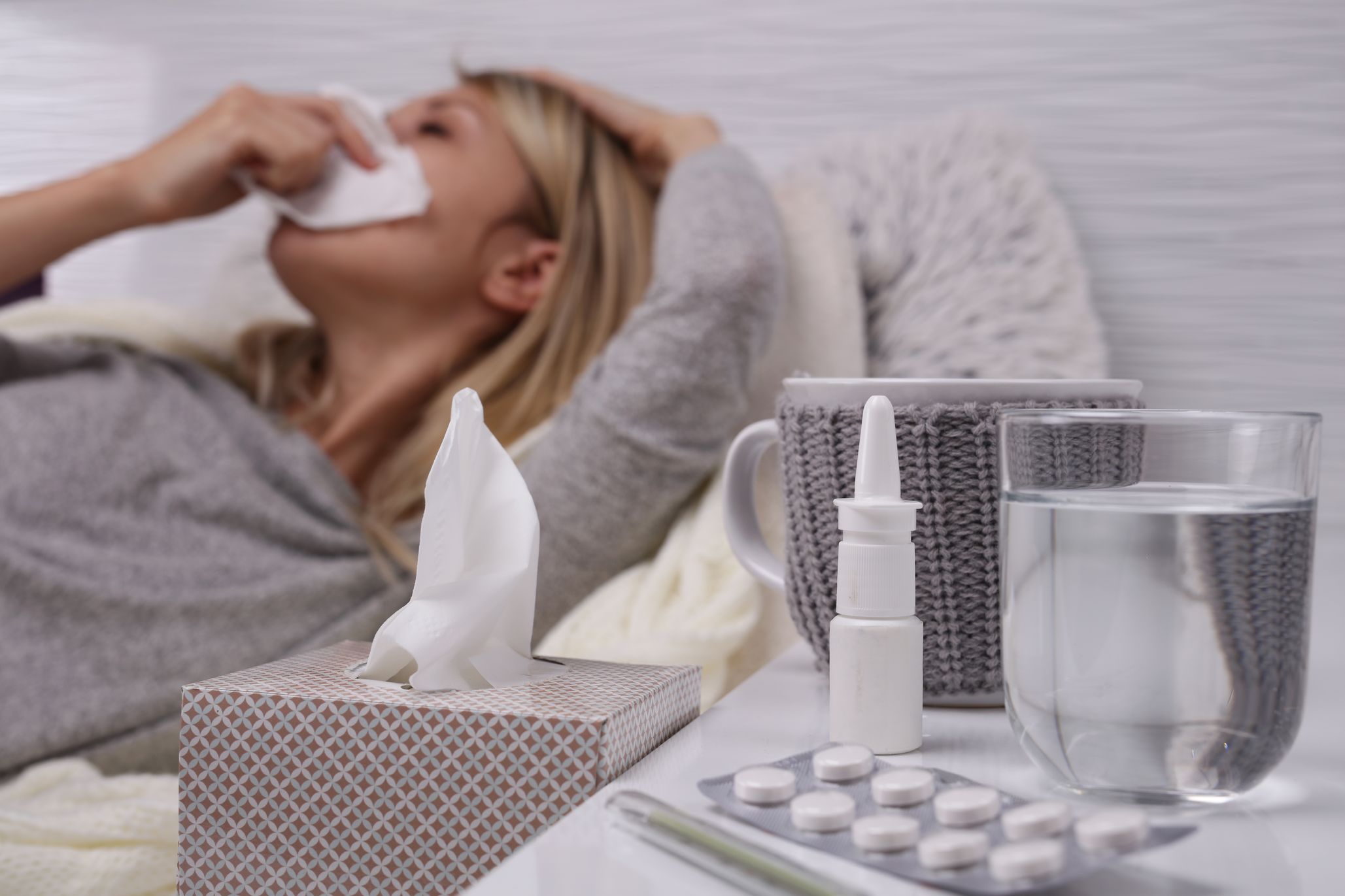infectious disease
Can Vitamin A Prevent Measles?

How to keep it out of your house and away from your family.
6 min read
For over 30 years, Dr. Barbara Keber has practiced family medicine at Glen Cove Hospital, a Northwell Health facility.
This time of year, I typically see many patients suffering from one dreaded thing—the flu. (Flu season typically starts as early as October and runs into April. The Centers for Disease Control and Prevention recommends an annual flu vaccination for everyone 6 months and older to avoid millions of people contracting this awful virus.) Formally known as influenza, the flu is a mild to severe respiratory illness that’s caused by viruses that tend to infect the nose, throat and lungs. The flu can cause body aches and high fevers, zap you of energy and leave you out of commission for weeks.
Unfortunately, many of my patients don’t realize how preventable the flu can be—if you follow these important guidelines.
It’s highly effective in helping to prevent the flu, especially when you get it early in the season. If you still haven’t gotten yours, it’s not too late. Perhaps you believe in some of the commonly held misconceptions surrounding this topic? Allow me to set the record straight.
Each year, researchers develop the vaccine based on which types of influenza they think are going to be the most prominent. Since they’re relying on educated guesses as to what virus type will circulate that year and no one can fully predict the future, the vaccine isn’t 100 percent effective (a common complaint I hear). How well it works can range widely from season to season, depending on how many people get vaccinated (the more, the better), as well as the similarity between the viruses in the vaccine and the actual viruses going around the community. But even during years when there isn’t a good match, the vaccine still helps protect you. That’s because if you do contract the flu, you will likely get a shorter, less severe case.
Some people believe that the vaccine can cause the flu—this is completely false. The virus in the vaccine is dead, so it cannot give you an active case of the flu. You may notice a low-grade fever after getting the shot, but this is not the flu! It’s your body doing its job: making antibodies and preparing to fight the virus. While it is possible to have a bad reaction to the vaccine, it’s extremely rare, with less than 1 percent of people having one.
Remember, foregoing your shot increases your chances of spreading the flu to others, including people who are at high risk for complications, such as babies, pregnant women, older people, and those with chronic health conditions, especially diabetes and lung, heart and kidney disease. (More than 200,000 people are hospitalized each year from flu-related complications, and it can even lead to death.)
Proper hand washing is the number one way to avoid the spread of germs—to yourself as well as to others. But a simple rinse under the faucet just won’t do; it’s crucial to wash the proper way. Think you’re doing it correctly? You’re probably not—studies show that only 5 percent of us wash our hands the right way to ward off germs. That means 95 percent of us are doing it wrong.
Here’s the right way to wash your hands:
Step 1: Wet hands from the wrist down. Position hands downward so the germs don’t run up your arm/sleeve. (Note: The temperature of the water actually makes no difference in germ removal.)
Step 2: Using a liberal amount of soap, lather and wash all areas of hands, including each finger and in between fingers. Do this for about 15-30 seconds. (You can do a simple count or sing the “Happy Birthday” song in your head two or three times.)
Step 3: Rinse your hands from the wrist downward.
Step 4: Keep water running, and without touching the towel dispenser, dry hands using a paper towel. (Be sure to dry them completely, as germs transfer more easily on wet skin.) Discard the towel without touching the garbage can.
Step 5: Use a new towel to turn the water off without touching the sink handle. And if there’s no sink available, alcohol-based hand sanitizer is fine, too.
It’s important to take care of yourself year-round, but it’s especially important during flu season. Be sure to eat a nutritious, well-balanced diet including lots of flu-fighting foods, such as:
Also focus on getting enough rest each night (7 to 8 hours for adults; 10 hours for kids) and maintaining a healthy exercise routine.
Some years, you’ll do everything right and still be among the 5 to 20 percent of the U.S. population who come down with the flu. If that happens, do your part to help prevent other people from falling ill.
If we all make smart choices, together we can fight the flu
The Well is Northwell Health’s commitment to the future of health care. In this time of information overabundance, much of which is inaccurate, unhelpful, or even difficult to understand, Northwell Health is on a mission to make a difference as an honest, trusted, and caring partner. The site connects with consumers to provide them with personalized content that reduces their stress, makes them laugh, and ultimately feel more confident and capable on their healthcare journey.